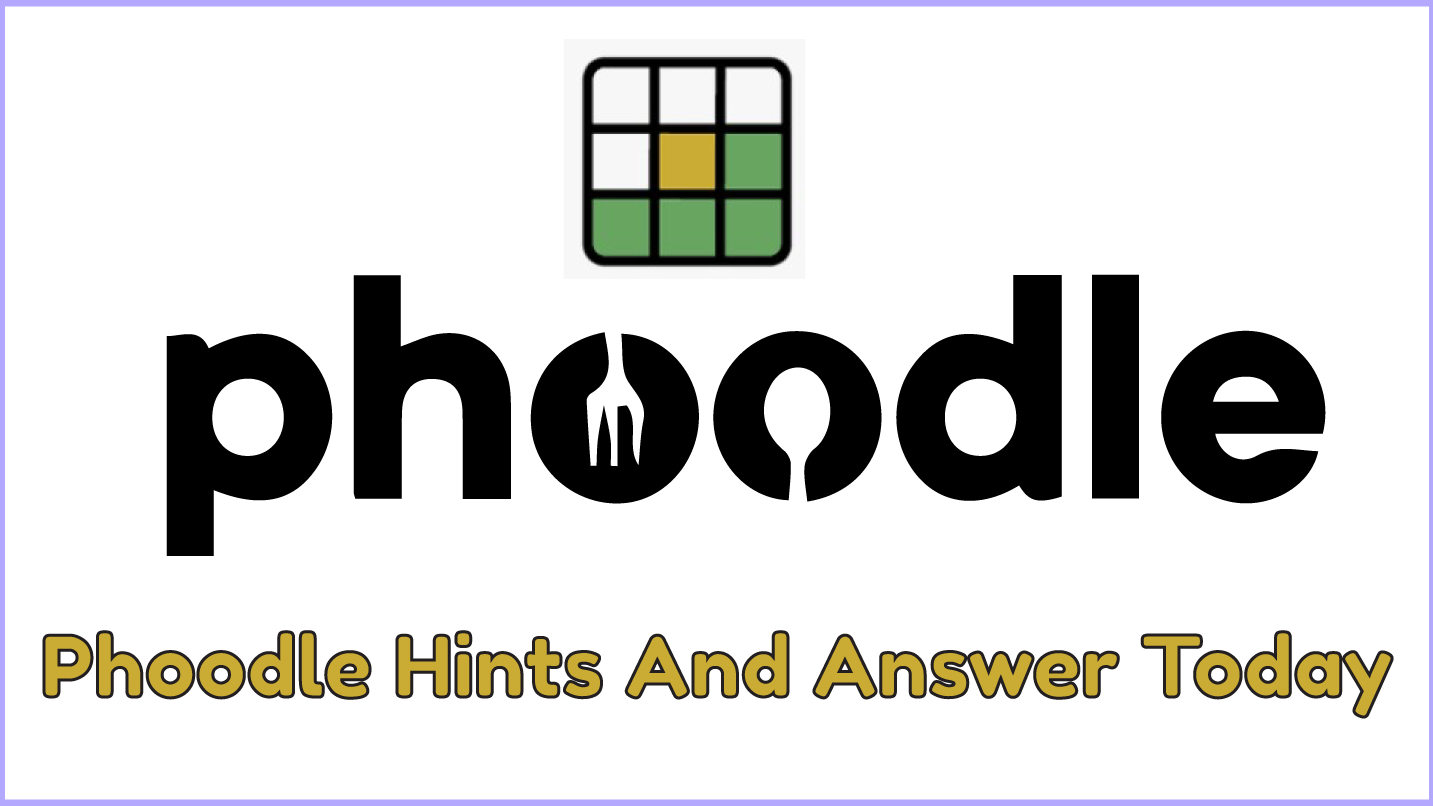If you like puzzles, you’re in luck! Phoodle gives a daily hint to test your problem-solving skills. These hints provide hints and challenges to keep your mind sharp and agile.
Phoodle’s daily hints promise new challenges every day. Riddles, word games, and logic puzzles provide hints. To answer, you must think critically, examine data, and create connections.
Phoodle - Food version of Wordle - Information
| Information | Details |
|---|---|
| Game Name | Phoodle - Food version of Wordle |
| Developed by | Martha Stewart |
| New puzzle time | 12 AM local time |
| Year | 2024 |
| Latest Update Answer | |
| Phoodle Puzzle official website | Phoodle.net |
Phoodle Hints And Answer Today
Tips for Guessing the Right Wordlers
Phoodle gives you a variety of hints that can help you find the answer. Here are a few suggestions to help you achieve your goals:
A decent starting point would be to look for terms that start with a certain combination of letters. You may eliminate ludicrous options and focus on realistic ones by using the initials of the advice to refine your guesses.
Take a Look at the Signs: Carefully read the tip and make note of all the facts provided. Look for appropriate phrases that could be a jumping off point. There are times when a single clue, when interpreted creatively, might provide many solutions.
Consider the Connections Between Words: An concept or topic-related word or phrase might be in the clue. Jot down these associations; they can take you to similar terms that finish the puzzle.
Use contextual clues: Make a mental note of any clues that include contextual information. Hints may sometimes disclose hidden information or patterns via the use of capitalization, space, punctuation marks, and font types.
Instead of settling for simple solutions or tried-and-true ways, try something new as you attempt to predict wordlers. Be creative; you may get the answer by using a pun, making a surprising link, or looking at things from a different angle.
Look for Words that Start with Specific Letters
To solve word puzzles, it might be helpful to first identify the letters that go into the words. Using this method, you may reduce the number of possible answers and improve your odds of getting it correctly. For example, suppose the clue gives us the letters “g-l-o-v-e.” Identifying words that begin with these letters, like “glove,” can help you narrow down your search to those that do.
You may come up with a list of possible solution words by starting with only a few letters. Thereafter, you may examine each word to see whether it corresponds to any of the other hints given. To save time and effort, this strategy removes random selections and lets you make smart estimates.
“Glove” is a good candidate, for instance, if the clue suggests anything about protective gloves or handwear. The word “glove” may not be the correct choice if an additional clue points to something completely different, such as gardening equipment.

